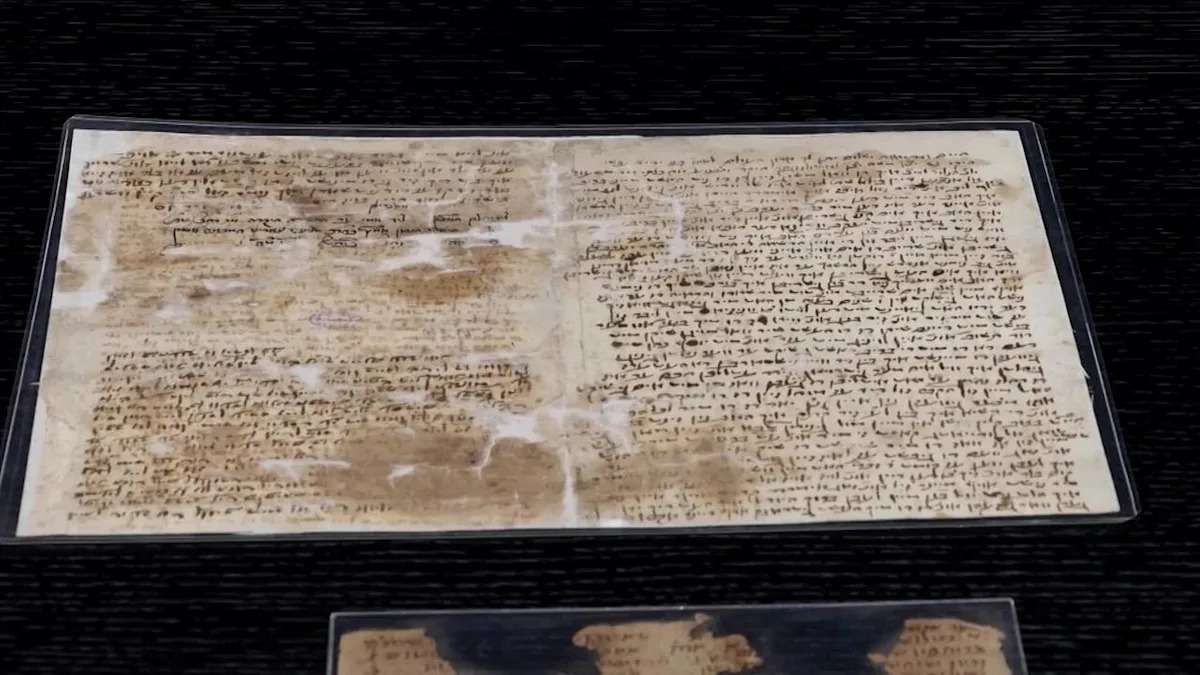Science
Researchers Uncover Medieval Jewish History Using AI Technology

Researchers are harnessing the power of artificial intelligence to explore the world’s largest collection of medieval Jewish documents, the *Cairo Genizah*. This vast archive, containing over 500,000 documents, provides invaluable insight into Jewish life during the medieval period and is located in Egypt.
The project, led by scholars from the University of Haifa and the Hebrew University of Jerusalem, aims to digitize and analyze these historical texts using advanced AI techniques. The initiative is expected to enhance understanding of Jewish culture, commerce, and daily life from the 9th century to the 15th century.
Revolutionizing Historical Research
The use of AI in historical research marks a significant shift in how scholars approach ancient texts. By employing machine learning algorithms, researchers can now decode and categorize documents at an unprecedented speed. This approach allows them to uncover patterns and connections that would be nearly impossible to identify manually.
Dr. Hannah Shapiro, a leading researcher on the project, stated, “AI enables us to sift through thousands of documents rapidly, highlighting key themes and relationships across centuries of Jewish history.” The technology facilitates a deeper analysis of the texts, which include letters, legal documents, and religious writings, offering a comprehensive view of the socio-economic conditions of the time.
The initiative is particularly timely as interest in Jewish history continues to grow. With the rise of digital humanities, projects like this one demonstrate the potential of technology to breathe new life into historical research. The findings from the project are anticipated to not only advance academic knowledge but also engage a wider audience interested in the rich tapestry of Jewish heritage.
Broader Implications for Historical Archives
The implications of this research extend beyond Jewish studies. The methodologies developed through this project could be applied to other historical archives worldwide. As historians face the daunting task of preserving and understanding vast amounts of data, AI presents a valuable tool that can streamline this process.
Funding for this groundbreaking project has been provided by various academic institutions and cultural heritage organizations, emphasizing the collaborative effort to preserve history. The ability to analyze texts quickly and accurately opens up new avenues for research and scholarship.
As the project progresses, the researchers are committed to sharing their findings with both the academic community and the public. This transparency aligns with a growing trend in academia to make research accessible and relevant to a broad audience.
The blending of artificial intelligence and historical research not only promises to enrich our understanding of the past but also highlights the importance of preserving cultural heritage for future generations. The success of this initiative could serve as a model for similar projects aimed at unraveling the complexities of human history contained within ancient texts.
In summary, the application of AI in studying the *Cairo Genizah* represents a significant advancement in historical research, offering the potential to uncover previously hidden narratives and foster a deeper appreciation for medieval Jewish life.
-

 Science1 month ago
Science1 month agoNostradamus’ 2026 Predictions: Star Death and Dark Events Loom
-

 Technology2 months ago
Technology2 months agoOpenAI to Implement Age Verification for ChatGPT by December 2025
-

 Technology7 months ago
Technology7 months agoDiscover the Top 10 Calorie Counting Apps of 2025
-

 Health5 months ago
Health5 months agoBella Hadid Shares Health Update After Treatment for Lyme Disease
-

 Health5 months ago
Health5 months agoAnalysts Project Stronger Growth for Apple’s iPhone 17 Lineup
-

 Technology5 months ago
Technology5 months agoElectric Moto Influencer Surronster Arrested in Tijuana
-

 Education5 months ago
Education5 months agoHarvard Secures Court Victory Over Federal Funding Cuts
-

 Science2 months ago
Science2 months agoBreakthroughs and Challenges Await Science in 2026
-

 Health5 months ago
Health5 months agoErin Bates Shares Recovery Update Following Sepsis Complications
-

 Technology7 months ago
Technology7 months agoMeta Initiates $60B AI Data Center Expansion, Starting in Ohio
-

 Technology6 months ago
Technology6 months agoDiscover How to Reverse Image Search Using ChatGPT Effortlessly
-

 Science4 months ago
Science4 months agoStarship V3 Set for 2026 Launch After Successful Final Test of Version 2




















